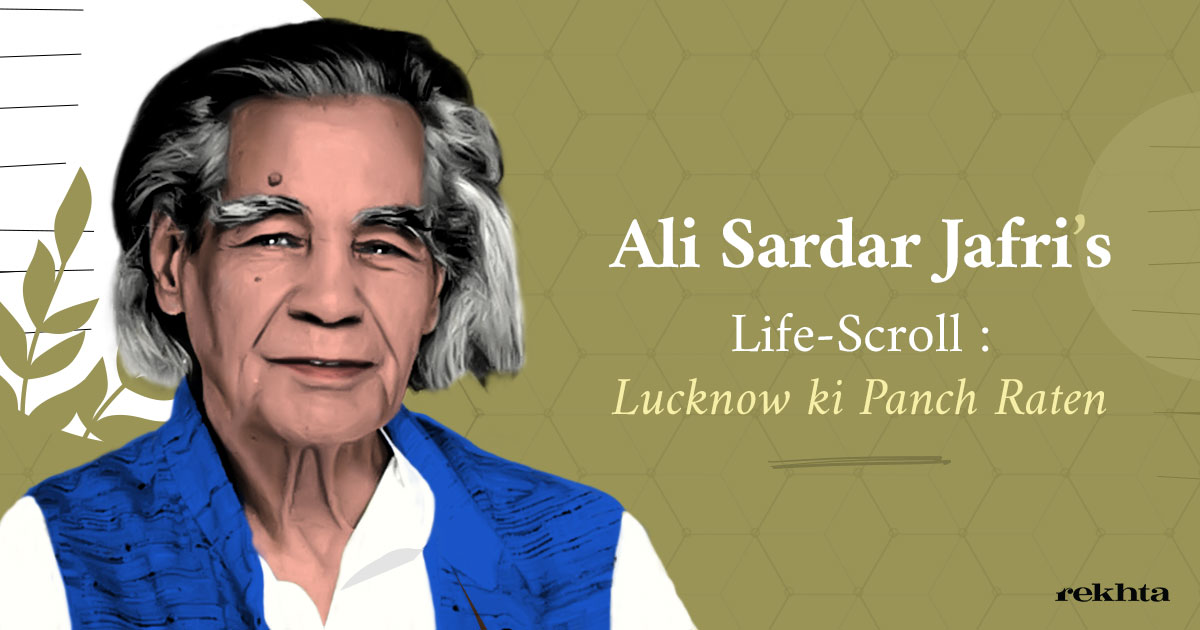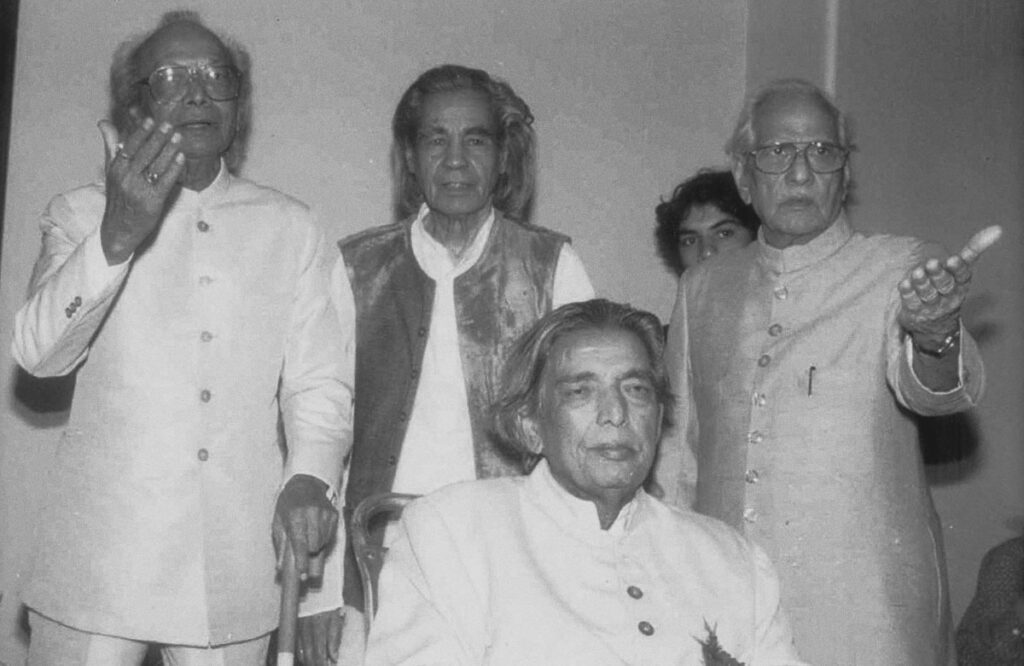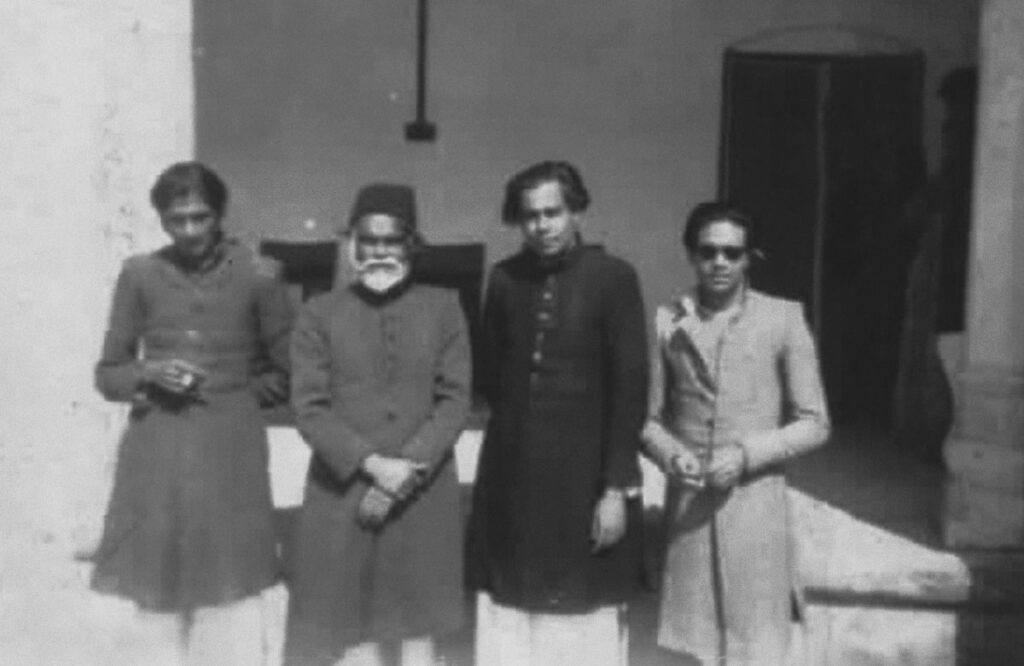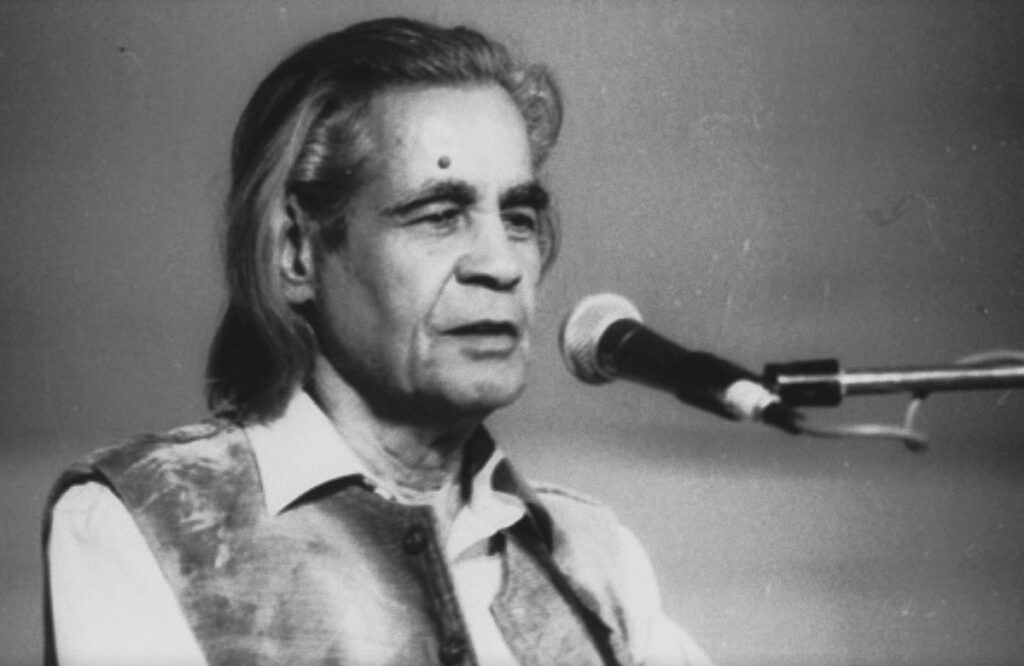
Ali Sardar Jafri’s Life-Scroll : Lucknow ki Panch Raten
Ali Sardar Jafri, the poet of love, peace, and courage, significantly graced the treasure of Urdu literature with his crowning work ‘Lucknow Ki Panch Raten’. A confluence of his travels, friendships, and acquaintance with lesser-known but important personalities, the book is one amalgam of travelogues, memoirs, and self-recollections- with an addictive narration.
The book begins with a Persian quote ‘qubool-e-bandgiyam ra Khuda-e-bar nami-khezad’, which means, ‘no God arises, to accept my devoutness’. In light of this quote, the late author alludes to his childhood, family, education, and other experiences which gave way to a restless quest in his young heart. He writes about this quest while touching upon his childhood, ‘Ours was a very peaceful clan. The world outside Balrampur was non-existent to us. It was here that children were born, brought up, and taught. They went as far as Aligarh for education and then got married, eventually getting employed in the state. But as I was growing up this quest kept me kindled, rather it created a stirring revolution in my life that why is the world the way it is? Why is it? It kept me awakened from the very start.’

To understand the essence of any city, it’s important to learn about its people, history, literature, and geography. And Lucknow, too, is no different. This was a city which, at that time, prided itself upon figures like Majaz, Ansar Harwani, Anwar Jamal Qidwai, Sibte Hasan, Farhat Ullah Ansari, Ali Zawad, Yashpal, and Dr. Rashid. All of whom make appearances in the book and are characters of consequence.
One hilarious event from the book recounts an incident in which his Kashmiri friend gets into a fistfight and Jafri, Majaz, and Sibte Hasan are at their playful best, some might say, borderline impish! As the punches are flying around, Majaz goes cuckoo, and starts screaming these lines from one of his Nazms,
Bol! Ari O Dharti Bol!
Raaj Singhasan Danvadol
The voiceless pages of Lucknow Ki Panch Raten also articulate Sardar Jafri’s first imprisonment. At a time when the struggle for independence rose to a crescendo, the youth of Lucknow too intensely participated in the clash. It was amidst this bedlam that Ali Sardar Jafri’s first arrest took place. The one thing from this experience that left our poet most bereaved was his personal life being infiltrated by outsiders, especially when it had nothing to do with politics. Recalling this event, Jafri writes, ‘When I was being checked at the police station, instead of conspiracy-evoking political documents all they found were a few photographs and love-letters of some girls. When I insisted my belongings be returned to me, the police officer straightforwardly refused. I didn’t care much about my arrest, but those letters, those photographs…!’

A thought-provoking figure named ‘Chehru Majhi’ also takes the reader by surprise. Born as Gul Chehra to a poor farmer, this beautiful 20-year old girl is no less than a mirror which reflects the fateful aftermath that the independence struggle left upon the lives of women. Chehru’s resolute story is an inspiring exemplar of a woman fighting for her very existence, against the ugly and detrimental norms of the society.
Sardar Jafri was also among the select few who always advocated for serious and far-reaching literature. An anecdote from this book corroborates this fact. A night when Jafri and Majaz were going door-to-door to sell copies of ‘Naya Adab’, and offering memberships to readers, the two were left starving and dejected with no takers for their hard work. The striking part of this episode comes at the end when Majaz, once again, tries to lift their dashed spirits by reciting these lines from his riveting Nazm ‘Aawara’,
raat hans hans kar ye kahti hai ki maiḳhane mein chal
phir kisi shahnaz-e-lala-ruḳh ke kashane mein chal
ye nahin mumkin to phir ai dost veerane mein chal
ai gham-e-dil kya karun, ai vahshat-e-dil kya karun
By now you must have guessed that beside Sardar Jafri, Majaz, too, is a focal part of the book. Majaz’s personality, just like his poetry, has influenced several people, and our author, too, was one of them. Citing this couplet from Majaz’s Nazm ‘Etiraf’, which brought a rebellious revolution in Urdu poetry,
woh gudaz-e-dil-e-marhoom kahan se laun
ab main woh jazba-e-masoom kahan se laun
Jafri asserts, ‘the day when the innocence of a poet’s conscience dies, his poetry, too, perishes.’
Stressing how crucial honesty and sincerity are to a poet’s penmanship, Sardar Jafri writes, ‘I hope every writer respects his pen, for only in this way could the honor of his real-self be restored’. Expounding upon the same, he quotes a Persian couplet which he used to write again and again over a slate so he would never forget it,
Qalam goyad ki man Shaah-e-Jahanam
Qalam kash ra ba-daulat mi-rasanam
The pen says, ‘I am the King of the World’
Owing to writing I’ve arrived at the gold
Besides Majaz, Jafri’s five nights of Lucknow are studded with stars of all sorts. From poets like Josh Malihabadi, Makhdum Mohiuddin, Faiz Ahmad Faiz, Jaan Nisar Akhtar to fiction writers such as Sajjad Zaheer and Krishan Chandar. It’s a constellation of literary superstars, one which is a universe in itself!

Sardar Jafri’s resolute tone and captivating recountal keep one hooked to the book. The book is also a testimony to India’s revered Ganga-Jamni Tahzeeb and portrays a past which was the very definition of unity in diversity, and echoed peace and togetherness. To any reader, the book will most likely figure as all the more relevant in today’s tempestuous age, as it admonishes against hatred and encourages us to carry forward our legacy of peace and love.
Thanks to Rekhta E-books, you can now read and flip through the pages of Sardar Jafri’s life in ‘Lucknow Ki Panch Raten’, anytime, anywhere!
NEWSLETTER
Enter your email address to follow this blog and receive notification of new posts.




